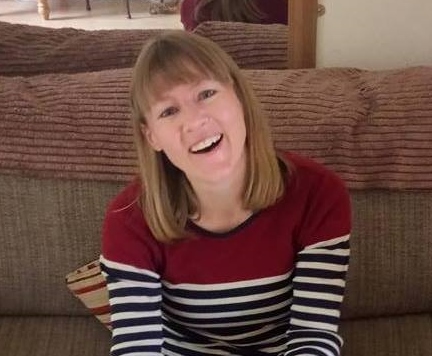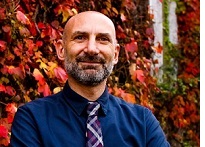The Perils and Promise of “Authenticity”

The RSP interview with Doctors Theodora Wild croft and Stephen Jacobs about the adoption (and/or appropriation) of kirtan in British culture interested me tremendously, as my own work focuses on Filianism—a New Religious Movement in Britain that, although not arising directly out of Hinduism, has frequently employed Sanskrit terms and elements of Hindu iconography to present itself to the public.
The RSP needs you!

It’s the start of a new season (semester?) of podcasts for the Religious Studies Project and we have a new responses editor in the form of me Jonathan Tuckett! You may remember me from back in the very early days of the podcasts
Stretching Good Faith: A Response to Candy Gunther Brown

If Candy Gunther Brown’s work is so divergent with her peers in academia, how does one contextualize her understanding of yoga and her approach to it? In keeping with Bender’s assessment that Brown “exemplifies the ‘caveat emptor’ genre of popular writing about CAM,” I would argue that Brown’s writings on yoga are most similar to the genre of Christian-based criticism of yoga.
Helen Bradstock

Helen Bradstock has a first class Bachelor degree in Education and Religious Studies from La Sainte Union College of HE in Southampton, UK, and a PhD from the University of Otago, Dunedin, New Zealand. She worked for 13 years as a primary school teacher on the Isle of Wight and in Kent. While living in […]
Messengers of Many Gods: A Response to the RSP Interview with Tehri Utriainen

Angels don’t just make esotericism accessible to Christians; they make the legacy of Christian thought and active dialogue with the Christian world accessible to people who have often left both on bad terms, and would not otherwise be willing or able to engage with them.
Mormon, Jesuits, and the Pain of Replication: A Historical-Social Excursus

In their interview dealing with the place of American religion in the world and ‘bodies in space’, Dan Gorman and Professor Laurie Maffly-Kipp cover a wide range of topics relevant to both American religious history and Mormon studies as they reflect on several important suggestions made by John McGreevy in his American Jesuits and the World.
Religious Studies Project Opportunities Digest – 31 May 2017

You may now advertise with the Religious Studies Project!
Platforms include podcasts, web pages, opportunities digest, and social media.
Laurie F. Maffly-Kipp

Dr. Maffly-Kipp’s research and teaching focus on African American religions, Mormonism, religion on the Pacific borderlands of the Americas, and issues of intercultural contact. Her publications are many and include: Religion and Society in Frontier California (Yale University Press, 1994), where she explored the nature of Protestant spiritual practices in Gold Rush California; articles on […]
James Kapalo

James Kapalo is Senior Lecturer in the Department of the Study of Religions at University College, Cork, where he teaches courses on contemporary Global Christianities, theory and method in the Study of Religions and ethnographic fieldwork. His main research interests include ethno-religious minorities and minority religons in Eastern Europe, Orthodox Christianity in the contemporary world, […]
Religious Studies Project Opportunities Digest – 27 April 2017

You may now advertise with the Religious Studies Project!Platforms include podcasts, web pages, opportunities digest, and social media.
you may still send or forward submissions regarding calls for papers, events, jobs, awards, grants, etc.
The Religious and Political Landscape in Peru: A Historic and Cautionary Tale

I can’t help but see the parallels between the Peruvian religious and political history which Fonseca outlines in his interview and the events currently taking place in the United States where religion and politics are more intricately entwined than ever before by a minority Far-Right Conservative Christian movement and its dominant media presence. This intriguing parallel makes Fonseca’s interview timely and important as history repeats itself.
Psychology and religious studies: Towards greater understanding

Extensive research has been conducted by psychologists, and continues to be conducted, exploring beliefs, values and perceptions. However, despite being a central part of the lives of so many people, religion and spirituality continues to be a fringe concern for many psychologists – perhaps because they are frequently perceived as being unscientific.
Framing, Observing, and Exhibiting Yoga: A Response to Bruce Sullivan

One link between yogic practice and museums may come from viewing yogis, yoga teachers, and yoga promoters as performing work comparable to museums in the nearly century and a half history of modern yoga’s global spread. As museums curate, exhibit, frame, spotlight, and annotate their works to an anticipated audience, yoga has similarly been consciously displayed and promoted. Modern yoga’s history can be emplotted through the way it has exhibited itself.
Religious Studies Project Opportunities Digest – 14 March 2017

You may now advertise with the Religious Studies Project!
Platforms include podcasts, web pages, opportunities digest, and social media.
you may still send or forward submissions regarding calls for papers, events, jobs, awards, grants, etc.
Theologies That Cannot Be: A Response to the RSP Interview with Dr. Caroline Blyth

Every discipline has both power and responsibility to contribute to the dismantling of the Patriarchy by declaring its valorization of avarice, egotism, and violence to be wrong. The particular duty and power of religious studies and theology, is to point out that that valorization is hypocritical—that the culture of Patriarchy is itself inimical to the values of the sacred social order from which it claims its authority and for which it claims to offer protection
